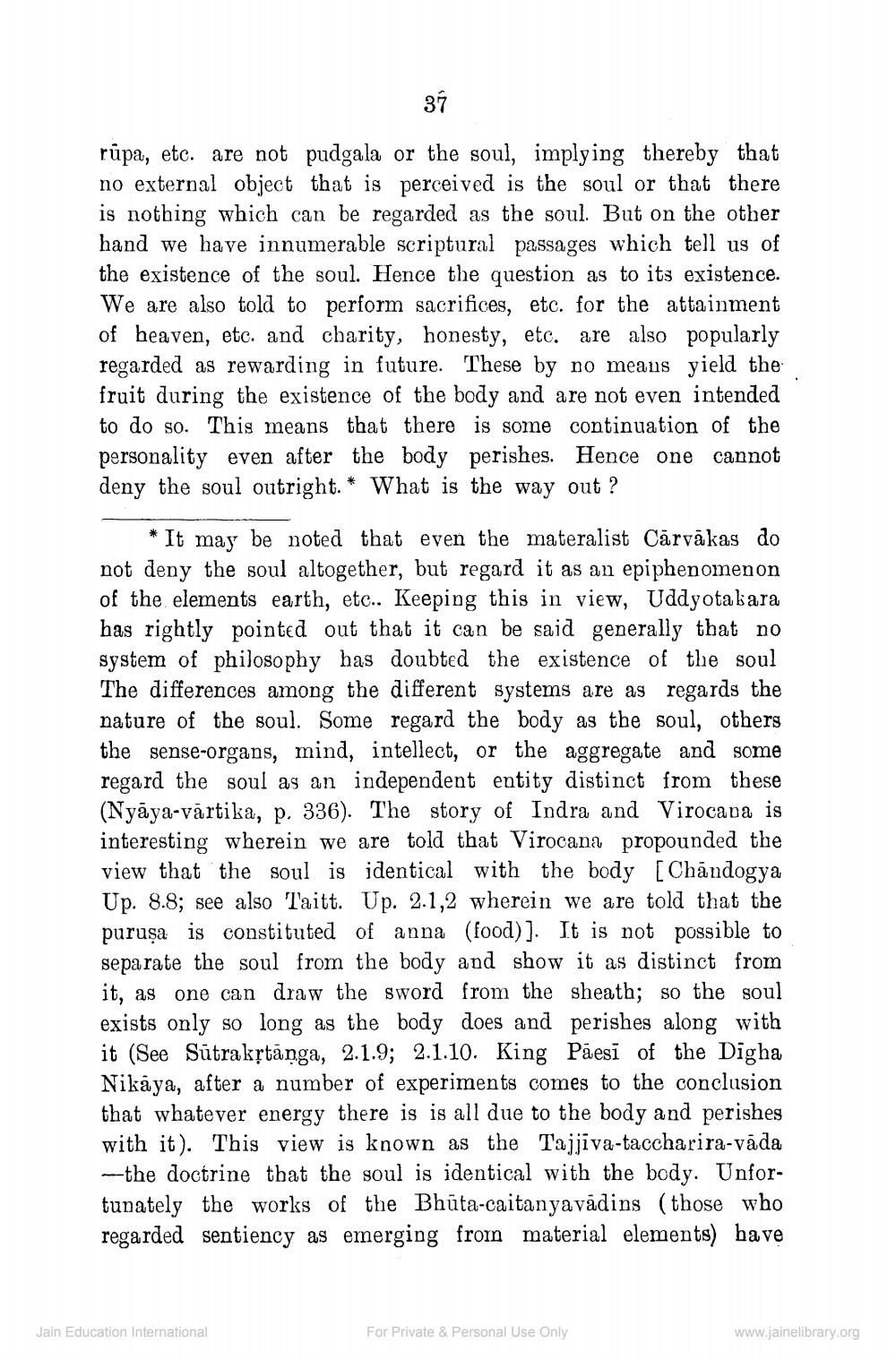________________
rūpa, etc. are not pudgala or the soul, implying thereby that no external object that is perceived is the soul or that there is nothing which can be regarded as the soul. But on the other hand we have innumerable scriptural passages which tell us of the existence of the soul. Hence the question as to its existence. We are also told to perform sacrifices, etc. for the attainment of heaven, etc. and charity, honesty, etc. are also popularly regarded as rewarding in future. These by no means yield the fruit during the existence of the body and are not even intended to do so. This means that there is some continuation of the personality even after the body perishes. Hence one cannot deny the soul outright. * What is the way out ?
* It may be noted that even the materalist Cārvākas do not deny the soul altogether, but regard it as an epiphenomenon of the elements earth, etc.. Keeping this in view, Uddyota kara has rightly pointed out that it can be said generally that no system of philosophy has doubted the existence of the soul The differences among the different systems are as regards the nature of the soul. Some regard the body as the soul, others the sense-organs, mind, intellect, or the aggregate and some regard the soul as an independent entity distinct from these (Nyāya-vārtika, p. 336). The story of Indra and Virocapa is interesting wherein we are told that Virocana propounded the view that the soul is identical with the body [Chandogya Up. 8.8; see also Taitt. Up. 2.1,2 wherein we are told that the puruṣa is constituted of anna (food)]. It is not possible to separate the soul from the body and show it as distinct from it, as one can draw the sword from the sheath; so the soul exists only so long as the body does and perishes along with it (See Sūtrakřtānga, 2.1.9; 2.1.10. King Pãesī of the Digha Nikāya, after a number of experiments comes to the conclusion that whatever energy there is is all due to the body and perishes with it). This view is known as the Tajjiva-taccharira-vāda --the doctrine that the soul is identical with the body. Unfortunately the works of the Bhūta-caitanyavādins (those who regarded sentiency as emerging from material elements) have
Jain Education International
For Private & Personal Use Only
www.jainelibrary.org




